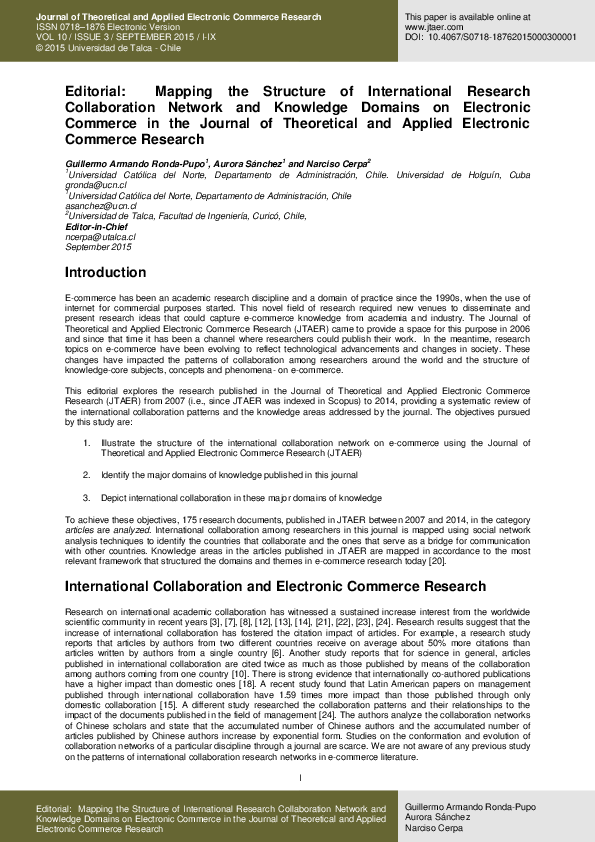网络口碑中的利他主义:撰写酒店体验评论的倾向性
IF 4.6
3区 管理学
Q1 BUSINESS
Journal of Theoretical and Applied Electronic Commerce Research
Pub Date : 2023-12-13
DOI:10.3390/jtaer18040113
引用次数: 0
摘要
本研究测试了顾客预订酒店时的可影响性与在电子口碑传播中撰写评论的倾向之间的关系。研究获得了 739 份在线问卷的有效样本。为了减少两个关键变量的维度,进行了探索性因子分析,并建立了测量模型。然后进行了路径分析。这项研究的新颖之处在于测量了从被动的网络口碑阅读者到主动的网络口碑撰写者的演变过程。结果表明,受阅读评论的影响与撰写评论的倾向之间存在关系。写评论最重要的潜在动机是利他。管理者应努力找出反应最积极的顾客,鼓励他们出于利他主义写评论。这项研究有效地验证了阅读评论的积极性对反过来撰写评论的倾向的影响。研究结果为酒店和旅游行业不断发展的电子口碑研究领域做出了贡献,为行业从业人员制定更有效的客户评论征集和管理策略提供了实用的见解。本文章由计算机程序翻译,如有差异,请以英文原文为准。
Altruism in eWOM: Propensity to Write Reviews on Hotel Experience
This research tests the relationship between aspects of customer influenceability at the time of booking a hotel with the propensity to write a review in electronic word-of-mouth communication. A valid sample of 739 online questionnaires was obtained. An Exploratory Factor Analysis was conducted in order to reduce the dimensions of the two critical variables, and a measurement model was built. Then a Path analysis was carried out. The novelty of this research lies in measuring the evolution from being a passive eWOM reader to a proactive eWOM writer. Results indicate a relationship between being influenced by reading reviews and the propensity to write reviews. The most important underlying motivation to write a review is altruistic. Managers should try to identify the most responsive customers and encourage them to write reviews on altruistic grounds. This study effectively validated the impact of being responsive to reading reviews on the inclination to, in turn, write them. Findings contribute to the evolving research landscape in eWOM within the hospitality and tourism sector, offering practical insights for industry practitioners to formulate more effective strategies in soliciting and managing customer reviews.
求助全文
通过发布文献求助,成功后即可免费获取论文全文。
去求助
来源期刊
CiteScore
9.50
自引率
3.60%
发文量
67
期刊介绍:
The Journal of Theoretical and Applied Electronic Commerce Research (JTAER) has been created to allow researchers, academicians and other professionals an agile and flexible channel of communication in which to share and debate new ideas and emerging technologies concerned with this rapidly evolving field. Business practices, social, cultural and legal concerns, personal privacy and security, communications technologies, mobile connectivity are among the important elements of electronic commerce and are becoming ever more relevant in everyday life. JTAER will assist in extending and improving the use of electronic commerce for the benefit of our society.

 求助内容:
求助内容: 应助结果提醒方式:
应助结果提醒方式:


